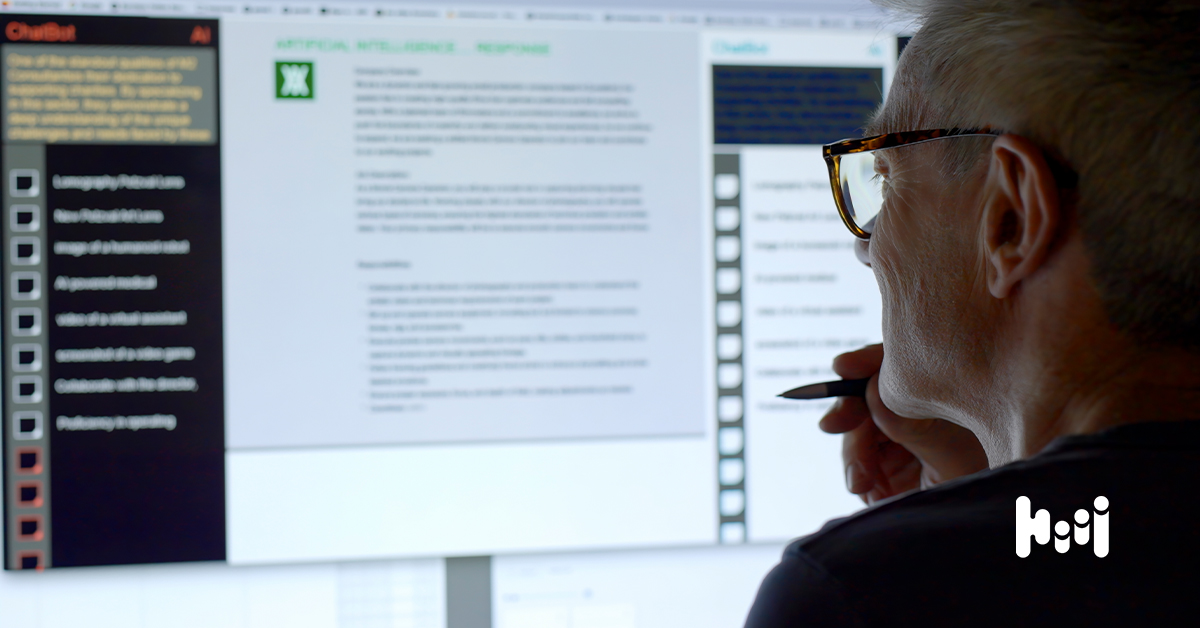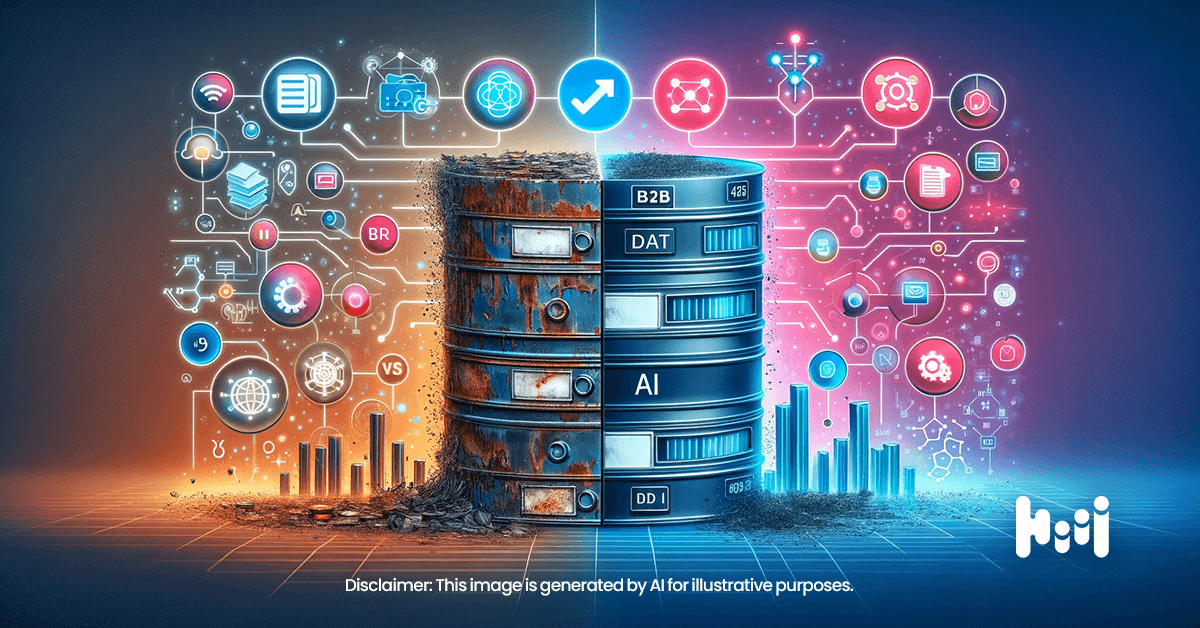
The traditional approach to B2B sales has been all about relationship-building and one-to-one communication. And while the new capabilities of generative AI will never replace human relationships, sales leaders believe a paradigm shift is coming.
McKinsey reports that 90% of commercial leaders expect to use generative AI solutions “often” over the next two years, and says that companies investing in AI are seeing sales ROI increase by up to 20%. That’s likely because the advanced models of generative AI are now able to streamline and automate the traditionally time-consuming processes of B2B sales, from scoring and handoffs to prioritization and follow-up.
This means busy salespeople can focus their time and energy on building personal relationships with the highest-value leads, rather than wasting hours on mundane tasks or chasing leads who aren’t likely to convert in the first place.
How B2B sales teams can use generative AI
Let’s explore exactly how B2B sales teams can use generative AI’s capabilities to leverage data, scale personalization, and automate workflows — and improve ROI at every step of the way.
Harnessing data
The B2B sales process produces vast amounts of unstructured data. Email conversations, chat transcripts, and meeting recordings are full of useful information about a prospect’s interests, questions, and objections.
But until very recently, salespeople had to manually record and transfer those insights into a CRM or other consumer data tool — which wasn’t easy or practical to do at scale. Many times, those valuable insights didn’t get captured in a systematic way that made them actionable for sales teams.
Now, generative AI tools can extract and automatically update consumer profiles with these valuable insights, helping your B2B sales team achieve outcomes like:
- Automated lead scoring: Unlike traditional lead scoring, AI doesn’t rely on subjective scores or predetermined criteria. Rather, AI lead scoring analyzes real-life behaviors to identify patterns that precede conversions. Those patterns are then used to score leads dynamically, rather than treating each website visit or email engagement as an isolated behavior.
- Predictive analytics: AI-powered models can use your company’s historical data to predict how prospects and accounts will move through the buying journey. Sales leaders can use predictive analytics to proactively improve forecasting, target customers at risk of churn, and identify upsell opportunities.
- Accurate lead prioritization: Gen AI can help sales teams identify leads that are, according to the data, most likely to convert. By prioritizing these leads for follow-up, busy sales reps can focus their efforts on high-value conversations and improve ROI across campaigns.
- Improved lead development: AI tools can help sales teams nurture leads more effectively by using customer data to generate discussion scripts, identify and recommend next steps, and surface relevant talking points. AI can also optimize outreach schedules by analyzing communication patterns and recommending the best times to reach out to leads to increase the chances of engagement.
Creating content and improving personalization
Personalized outreach is essential for B2B sales — but creating content can be one of the most time-consuming tasks for most reps. Even when working from templates or existing collateral, crafting 1:1 emails or customizing assets takes up a lot of time.
Generative AI makes it possible to achieve personalized outreach at scale by:
- Drafting sales emails: Instead of staring at a blank page, sales reps can use gen AI to produce initial drafts based on the recipient’s profile, previous interactions, or specific products they might be interested in. This speeds up the writing process and ensures a relevant starting point for every outreach.
- Editing materials: AI can act as an initial editor, from proofreading and refining language to ensuring consistency and suggesting changes to make content more engaging or persuasive. This saves valuable time, delivers a polished impression, and improves confidence for sales reps who may not consider writing their strong suit.
- Improving email personalization: Beyond generic personal touches like adding a recipient’s name, gen AI can use data to tailor messages. AI can even reference past interactions or shared connections, helping sales reps build human-to-human relationships.
- Customizing content: Gen AI empowers sales teams to produce tailored collateral efficiently, catering to specific industries, job roles, or purchasing authority levels. In just a few minutes, gen AI can refresh headlines or images for informational documents, craft industry-relevant scenarios for presentation slides, or adapt email content to suit varying company sizes.
Automating tasks and repetitive work
With the right tools in place, generative AI can give every sales representative their own personal assistant — ensuring no leads fall through the cracks, taking on administrative tasks, and freeing up your sales reps’ valuable time.
When time is money, here’s where AI really shines:
- Data entry: With CRM integrations, generative AI can automatically populate your systems with relevant data, reducing manual entry errors and ensuring records are always up-to-date.
- Post-meeting follow-up: Gen AI can transcribe voice recordings or handwritten notes, making them searchable and easily accessible for future reference. AI tools can also generate key takeaways, unanswered questions, and follow-up action items after any meeting.
- Schedule and automate next steps: After every interaction, gen AI can analyze the conversation’s context, suggest timely and appropriate follow-up actions, and schedule reminders — or automate follow-up messages altogether.
Bottom line: by harnessing data, scaling personalization, and automating workflows, generative AI can supercharge your B2B sales team’s efficiency.
Adopt AI-powered tools to support your sales team
Most of the major CRMs now include AI integrations or embedded features that will give your sales team a natural head start on AI. But here are a few additional tools you may want to adopt:
- ChatGPT: This conversational AI tool uses a chatbot-style interface to take questions or requests and instantly generate answers, content, or ideas, making it ideal for assisting sales teams with content creation.
- Gong: By analyzing video and call recordings, this AI-powered revenue intelligence platform can highlight account gaps or risks, deliver next-step recommendations, and surface coaching opportunities.
- Audience Builder: This prospecting tool uses AI to build and refine accurate prospect lists and improve customer data tracking.
- Otter / Fathom / Fireflies: There are several AI note-taking tools on the market that can transcribe, summarize, and deliver action items from meeting recordings — look for one that offers robust integrations with your team’s CRM.
Elevate B2B Sales with Gen AI
Generative AI offers new avenues for optimizing B2B sales, from data analysis to task automation. At the forefront of this evolution, DemandScience is pioneering AI-driven solutions for B2B demand and lead generation. Explore the potential to enhance your sales processes and relationships.










